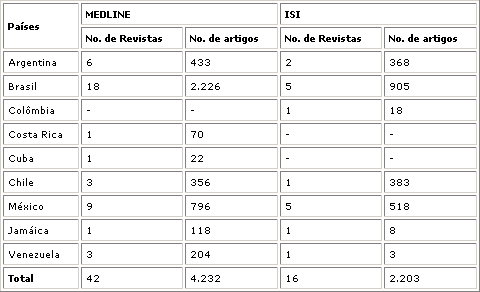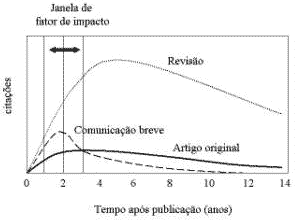"Considering that,
All groups of the population should participate in the decisions that affect individual and collective health of the subjects;
That it is necessary to multiple the spaces and opportunities in which different interests can be expressed and where consent can be reached about healthcare policy;
That information and ideal knowledge for decision making in the promotion of collective well being should be based on agendas prepared with wide social participation;
That dissemination of technical and scientific information and the decrease in unfair access to such elements is essential for healthcare policies to be consolidated;
That new information technology systems and internet-based communication have a key role in the timely dissemination of information concerning all citizens, also providing opportunities to communicate and exchange information between them,
We commit to
Keep on building and promoting the Virtual Healthcare Library (BVS) in a decentralized and participative format, as a dynamic platform to facilitate the production, communication and use of information and knowledge to support formulation and installation of public policies in order to promote health an fight against poverty and injustice.
And recognizing that publications in Portuguese and Spanish in the Americas and the Caribbean are not massively represented in international databases, we intend to develop the appropriate mechanisms to assess the national and regional scientific productions.
Considering that some indicators used nowadays are not satisfactory to assess clinical and applied investigations performed in our region, we propose to prepare and apply the quality indicators in order to bring attention to our situation. Such indicators should be promoted by BVS. And that the analysis of the indicators of periodicals of scientific production in the region be conducted based on regional and national databases such as LILACS and SciELO.
And finally, considering that SciELO is selected and represent the best journals in the area, increasing significantly its accessibility and visibility, we propose the inclusion of scientific journals in SciELO as a tool to start considering the scientific production and quality of publications originated to it."
What was summarized above is part of the final document of the regional meeting of Latin America, Caribbean, Portugal and Spain which took place last May in Puebla, Mexico, which counted on the participation of various editors of medical journals from many countries, in addition to the presence of coordinators and players of the areas of database, indexing and assessing of scientific journals from the whole region.
As we can see, the topic of the meeting was the capacity that scientific journals have of sustaining decision making in healthcare. Be it because of quality or meaning, be it because of the capacity of investigators and policy makers to access them.
This same topic makes us wonder about our Brazilian Journal of Otorhinolaryngology (RBORL), how it has performed in such aspects and how the main research incentive agencies, such as CAPES, CNPq and FAPEs in Brazil, have manifested about the scientific production of higher education institutions.
The first item to be addressed is quality. It is difficult to argue about the quality of the journals in general based on the indexes that are made available by international agencies, since what is presented both at MEDLINE and ISI - the most frequently used and frankly favored by the incentive agencies concerning the quality of scientific periodicals and authors that have already made publications on them - are not indexes based on content or the way editors ensure the appropriateness of the published content. What the indexes measure is how many times an article is cited concerning the total number of published articles by the periodical every year. This index, the impact factor (IF) was created by Garfield, in the 60's, in order to simply assess the cost-benefit to determine the size of the magazine, rather than its quality.
More comprehensive forms of assessing quality of a journal would be the proportion of article submitted and refused, transparency, quality and variety of opinions of the peer review system and systematic assessment of study design and the methodological qualification of external examiners. None of this is part of the assessment systems currently in force. At RBORL, we have tried to progress in peer review and today there are over 100 scientific reviewers, comprising all areas of ENT and most Brazilian states. We count on associated editors specific for some areas, who are used when there is opinion divergence between the two reviewers that assessed one of the original articles, and the need to translate and submit the articles to our international editor in chief. Currently, our rate of refused articles has increased, reaching over 30% in the year 2002.
As to the aspect of significance, we know that there are different interests by those who read a scientific journal. It can be used to understand new concepts and confirm previous scientific premises, as well as to refuse them. They can also be used to provide professional medical guidance. Both functions are essential in scientific training. In addition, we should also bear in mind the essential use of scientific information for the definition of healthcare policies. In those three items, we realize that a journal is not formed only to reach index of citations, but rather to provide subsidies and evidence for the performance of well balanced professional activities.
As a result of the current system of bibliographic indexes provided, databases do not include regional journals (tables 1 and 2).
We are forced to validate information provided from other regions as if it was more interesting and correct than the one provided by regional periodicals. However, we know that Brazilian readers read more RBORL than periodicals in English, be it because of language barriers, cost or because it represents the information closets to their own reality and produced by authors that are known and easily contacted. Therefore, the significance of national periodicals with good content and coverage is essential as practical reference for authors in the area of health. In this topic, RBORL has maintained its clear leadership providing 75% of original articles in its pages and about 10% of review articles (very popular and used for the production of other articles both in Brazil and abroad) and it is distributed to about 70% of all specialists in the country.

However, owing to the policy of validation of the national research agencies, the index of citations and the impact factor produced by MEDLINE and especially ISI (predominantly Anglo-Saxon - 20 to 25 journals indexed with ISI are not American), our articles and authors are little considered in terms of scientific production, being similar to international C (non-ISI) but not similar to ISI with impact factor below 0.5. So as to have an idea of what it means, four years ago we made an impact factor analysis of our journal for Brazilian publications and our index was second only to Laryngoscope, however, since we are not participants of ISI (chart 1), the Brazilian government prefers not to take into consideration ours and others similarly undervalued publications.

It takes us to a last aspect concerning accessibility. We know that Internet favors search procedures and it increases visibility of what is accessible. Currently, this characteristic has operated on both ends for scientific production, since there is a great privilege for journals included in the main databases, which is not the case of non-Anglo Saxon journals. To that end, we have noticed that those that are cited are in the net and the net has only those that are cited. The probable way out to theses academic confusion would be SciELO, which in addition to giving visibility to Portuguese and Spanish articles is beginning to provided impact indexes and citations that should be disseminated in 3 or 4 years in a regular basis. Thus, RBORL has been prepared to present favorable indexes. The first necessary measure is that national writers should include our national authors when writing their original articles, so as our citation index can increase. We know it is not always easy, since articles are not available online in all situations. The journal has gone fully digital since 1933, and soon it will have an electronic web site with SciELO methodology, with the journal published in Portuguese and English. Moreover, our triologico congress in Rio de Janeiro will distribute CDs with all the volumes of RBORL since Number 1. Another important measure is concentrating all accesses to the internet in one single web site. To that, we would like to ask readers to concentrate their bibliographical investigations at the search engine SciELO (www.sceilo.br) or BIREME (www.bireme.br), because then we can have accessed accounted for and validates by indexing agencies. The links to SciELO at PUBMED and ISI are being implemented, so as all users can have the tools to help searching RBORL in the issues that are included at SciELO and LILACS.
The path has been chosen, we try to search for periodicity, expansion, increase in scientific competence, and wide production of knowledge. We reached a quality standard compatible to any other periodical in our area, both locally and internationally. We have room in the best place of the region so that the access has no barriers of language or prejudice. The authorities responsible for fostering research in Brazil lack the appropriate understanding so as to put aside this old policy of the colonizer and take on the role of revitalizing and valuing agent of the national culture and intelligence, so that we can keep on developing the scientific area in our country.
Regards,


